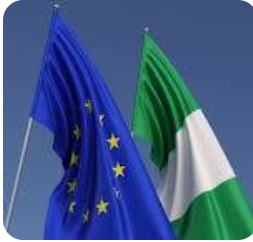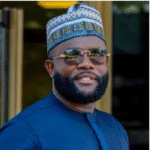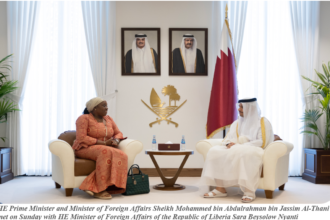By Isaac Okoro
Abuja, Nigeria – The European Union (EU) and the Federal Government of Nigeria have reaffirmed their commitment to fighting transnational organized crime through enhanced judicial collaboration. This commitment was highlighted at a high-level meeting held in Abuja on Tuesday, signifying a strengthening of ties following the working arrangements signed between the two entities in 2023.
The meeting, attended by key officials including Vice-President of Eurojust, Mr. José de la Mata Amaya, and the Solicitor-General of the Federation and Permanent Secretary of the Federal Ministry of Justice, Mrs. Beatrice Jedy-Agba, focused on strategies to improve cross-border criminal investigations and bring offenders to justice.
Mr. Amaya emphasized the critical need for international cooperation, stating, “Crime knows no borders, and the only way countries can succeed in criminal investigations and bring offenders to justice is through collaboration. Nigeria needs support and assistance in its cases with EU member states, and indeed, the member states of the European Union also need to strengthen and enhance their cooperation with Nigerian authorities.”
The 2023 working arrangement serves as a foundation for reinforced collaboration, with potential for a future international agreement between the EU and Nigeria. The aim is to improve the number of jointly handled cases by providing greater assistance to judges and prosecutors in both regions for their cross-border investigations.
“We have concluded that, while one can achieve something alone, going farther requires teamwork,” Mr. Amaya stated. “That is the goal of this working arrangement—to work as a team, respecting all international conventions…and uphold the guarantees and rights of individuals under investigation.”
EU Ambassador to Nigeria and ECOWAS, Ambassador Gautier Mignot, hailed the meeting as a “strong expression of the joint commitment from Nigeria on the one hand and the UN agencies on the other, to combat crime—particularly transnational organized crime—in a more coordinated and efficient manner.” He also acknowledged the crucial role of the United Nations Office on Drugs and Crime in facilitating this cooperation.
Mrs. Jedy-Agba echoed these sentiments, emphasizing that the collaboration is significant in today’s globalized world. “This arrangement is primarily aimed at strengthening our joint efforts against transnational organized crimes, with particular focus on enhancing seamless judicial cooperation across international borders in the interest of international criminal justice,” she said. She further highlighted the role of Eurojust in supporting Nigeria’s efforts to extradite suspects, exchange information for investigations, and enforce foreign judgments.
In the coming days, the EU and Nigeria plan to initiate dialogues to enhance mutual understanding of their respective systems, identify challenges, and explore opportunities for deeper and more effective collaboration.
Mrs. Jedy-Agba listed transnational organized crimes such as human trafficking, drug trafficking, economic and financial crimes, and money laundering as key areas of focus. She emphasized that the support Nigeria is receiving from Eurojust is vital in tackling these complex issues.
“We need support and assistance from countries all over the world, and this is just one of many partnerships and endeavors to ensure we are best equipped to tackle crimes of a transnational nature,” she concluded. This strengthened partnership between the EU and Nigeria marks a significant step forward in the global fight against transnational organized crime.









